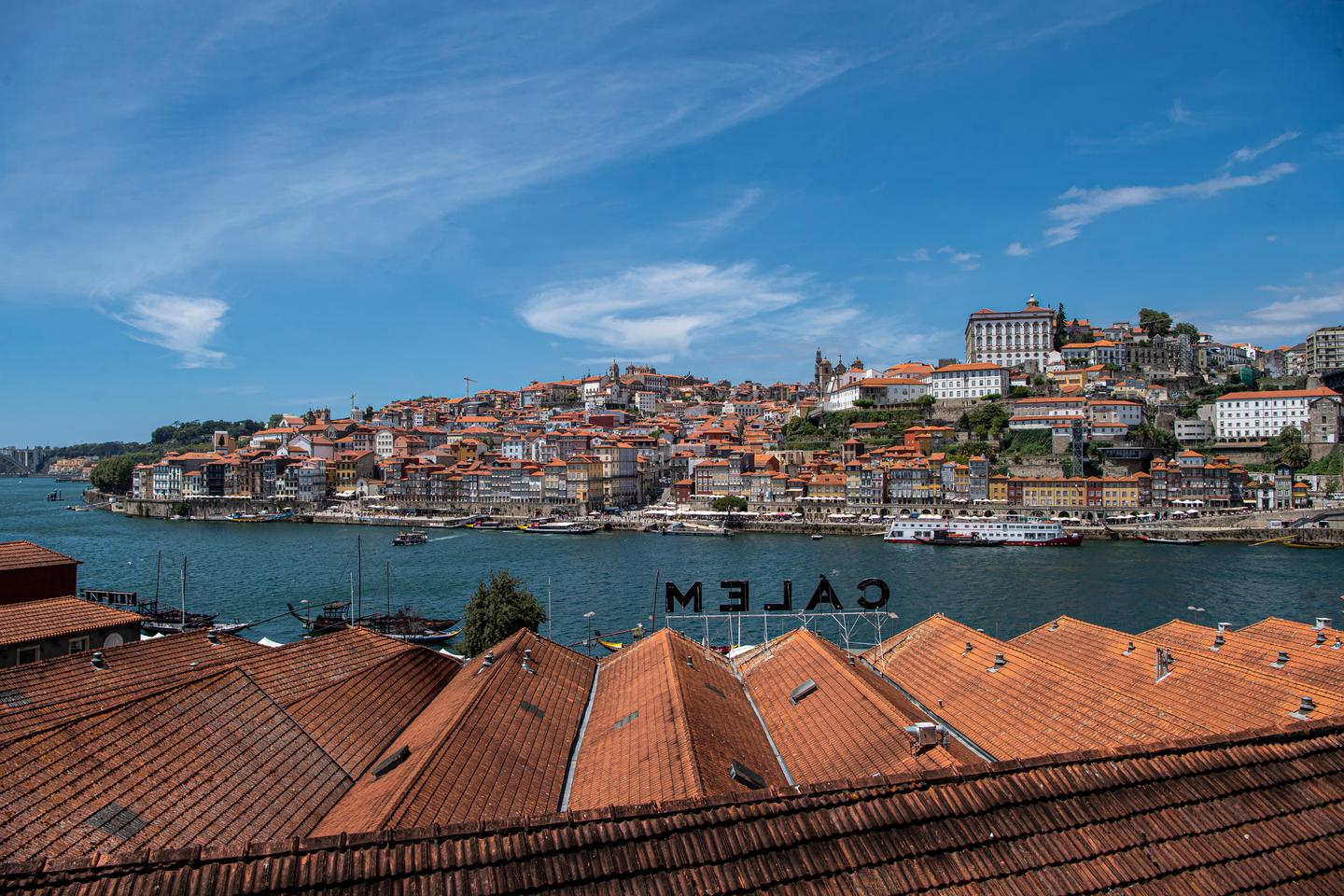
At the beginning of November, temperatures start to drop in northern Portugal. The sun still rises high in the afternoon, but it’s barely above 7°C or 8°C at dawn. In her one-bedroom apartment in Vila Nova de Gaia, near Porto, Fernanda Assimplia is already shaking. “The building is not well insulated, and the difficult period is about to begin.”This young woman, in her forties, is unemployed.
to turn on the heating? Impossible: It is not a priority expense.And the She snaps, trying to hide her anxiety behind a sad smile. The €1,000 in monthly social assistance she receives barely allows her to cover €600 of her rent and living expenses for her five children, ages 6 to 17. “Because of supermarket prices, I couldn’t pay the rent last month. When it gets too cold, we’ll sleep with our coats on the beds.”
A few kilometers away, in Porto, a business administration student, Lourenco Gomez, put a strip of duct tape over the windows of the small apartment he shares with a roommate. “Otherwise, the air gets through and my desk is right next to it.”, he explains. On certain days, the two friends turn on a small electric fireplace in the common room. “But only when the temperature drops below 10 degrees Celsius outside. From December to February we stay at the university as late as possible: there, it’s good.”
infiltration and moisture
Don’t be fooled by Portugal’s sunny reputation: winters can be brutal, especially in the north and countryside. “Certainly, this is not the Great Arctic cold, a far cry from itAnd the explains Joao Jonaz de Mello, who specializes in environmental engineering at the New University of Lisbon. But our country suffers from a major problem of energy poverty: many families are unable to heat their homes in the winter – and to protect them from the heat in the summer. »
In fact, 16.4% of Portuguese are unable to warm themselves properly, according to Eurostat, compared to an average of 6.9% in the European Union (EU). Only Greece (17.5%), Lithuania (22.5%) and Bulgaria (23.7%) fared worse. And that’s not all: due to insulation problems, 25.2% of households have worrying problems of infiltration and dampness in their homes, compared to an average of 16.7% in the European Union. Only Cypriots are the worst (39.1%).
“The problem is not new, but the energy crisis and hyperinflation have worsened and the next few months will be difficult.”, explained Katia Santos and Elisabeth Santos, of the Portuguese branch of the NGOs European Anti-Poverty Network (EAPN). In October, inflation peaked at 10.6%, including 31% for electricity and gas, according to Eurostat.
You have 74.39% of this article left to read. The following is for subscribers only.






